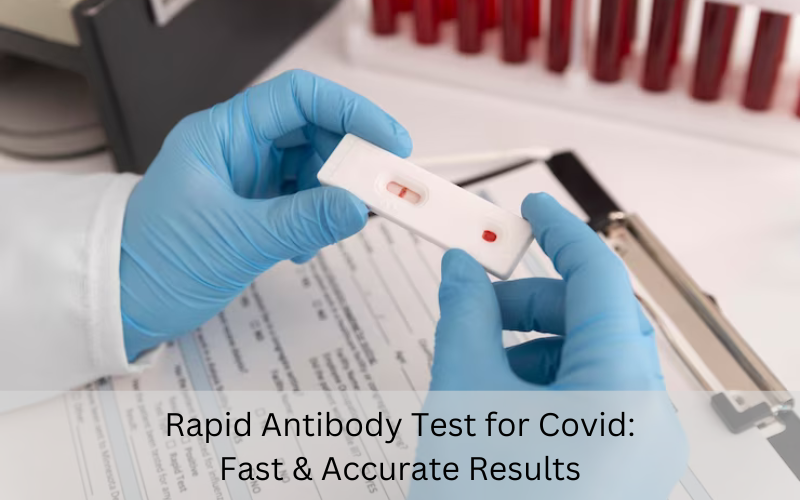
During the continued struggle against the COVID-19 pandemic, diagnostic tools have played a pivotal role in curbing the spread of the virus. One such tool that has gained prominence is the Rapid Antibody Test for Covid. This post delves into the intricacies of this testing method, exploring its speed, accuracy, and significance in our fight against the virus.
The Rapid Antibody Test, also known as the serology test, is a diagnostic tool used to detect antibodies generated by the immune system as a reaction to the COVID-19 virus. Unlike the PCR and antigen tests that identify the presence of the virus itself, this test focuses on the body’s immune response. It can determine if you have been previously infected with COVID-19.
While PCR and antigen tests are crucial for diagnosing active COVID-19 infections, the rapid antibody test serves a different purpose. It helps identify individuals who have recovered from the virus or have developed immunity. This distinction makes it a valuable tool in understanding the prevalence of COVID-19 within a community and assessing the efficacy of vaccination campaigns.
The Rapid Antibody Test analyses a blood sample, usually obtained through a fingerstick or venous blood draw. It detects two types of antibodies: IgM and IgG. IgM antibodies appear early in the infection, indicating a recent or active COVID-19 infection. IgG antibodies develop later and suggest a past infection or vaccination.
One of the standout features of the Rapid Antibody Test is its swift turnaround time. Unlike PCR tests, which can take hours or even days to produce results, rapid antibody tests provide outcomes within minutes, making them incredibly valuable in situations that demand quick decisions.
Contrary to the misconceptions that rapid tests are less accurate, modern rapid antibody tests have shown commendable accuracy rates. With advancements in technology, their sensitivity and specificity have improved significantly.
Getting a rapid antibody test is beneficial if you suspect you had COVID-19 but were not tested during the acute phase. It can confirm whether you had a previous infection, providing peace of mind and allowing you to take necessary precautions.
Many countries and events now require proof of COVID-19 immunity for entry. The rapid antibody test can be a convenient way to meet these requirements and participate in travel and activities without quarantine or testing on arrival. It would be best to schedule your appointment at the Wilmington Urgent Care clinic for your rapid antibody test for Covid.
Rapid antibody tests have been instrumental in population-wide screenings and surveillance efforts. We help identify individuals who may have been exposed to the virus, even if we were asymptomatic, thereby aiding in contact tracing.
Many countries and organizations now accept negative rapid antibody test results as a travel or event entry prerequisite. The quick results enable travellers and event-goers to meet requirements efficiently.
During the rapid antibody test, a minor blood sample is obtained by puncturing your finger with a lancet or drawing venous blood with a needle. The collected sample is then placed on a test strip or cartridge.
Typically, results can be obtained in 15 to 30 minutes. A positive outcome signifies the presence of COVID-19 antibodies, whereas a negative effect implies their absence. It’s important to note that a negative result does not necessarily mean you were never infected, as antibody levels can vary.
One challenge with rapid antibody testing lies in the variability of individual immune responses. Some individuals may only develop detectable antibodies several days after infection, potentially yielding false negatives if tested too early.
Interpreting rapid antibody test results requires expertise. Cross-reactivity with antibodies from previous infections can lead to false positives. Therefore, these tests should be administered and interpreted by trained healthcare professionals.
The Rapid Antibody Test for Covid is undeniably a valuable tool in our arsenal against the pandemic. Its speed and accuracy, when properly understood and administered, can significantly contribute to controlling the spread of the virus. However, it’s essential to remember that no test is foolproof, and rapid antibody testing should be used in conjunction with other diagnostic methods to ensure the most accurate results. As we navigate these challenging times, staying informed about the various testing options available is crucial in protecting ourselves and our communities from COVID-19.